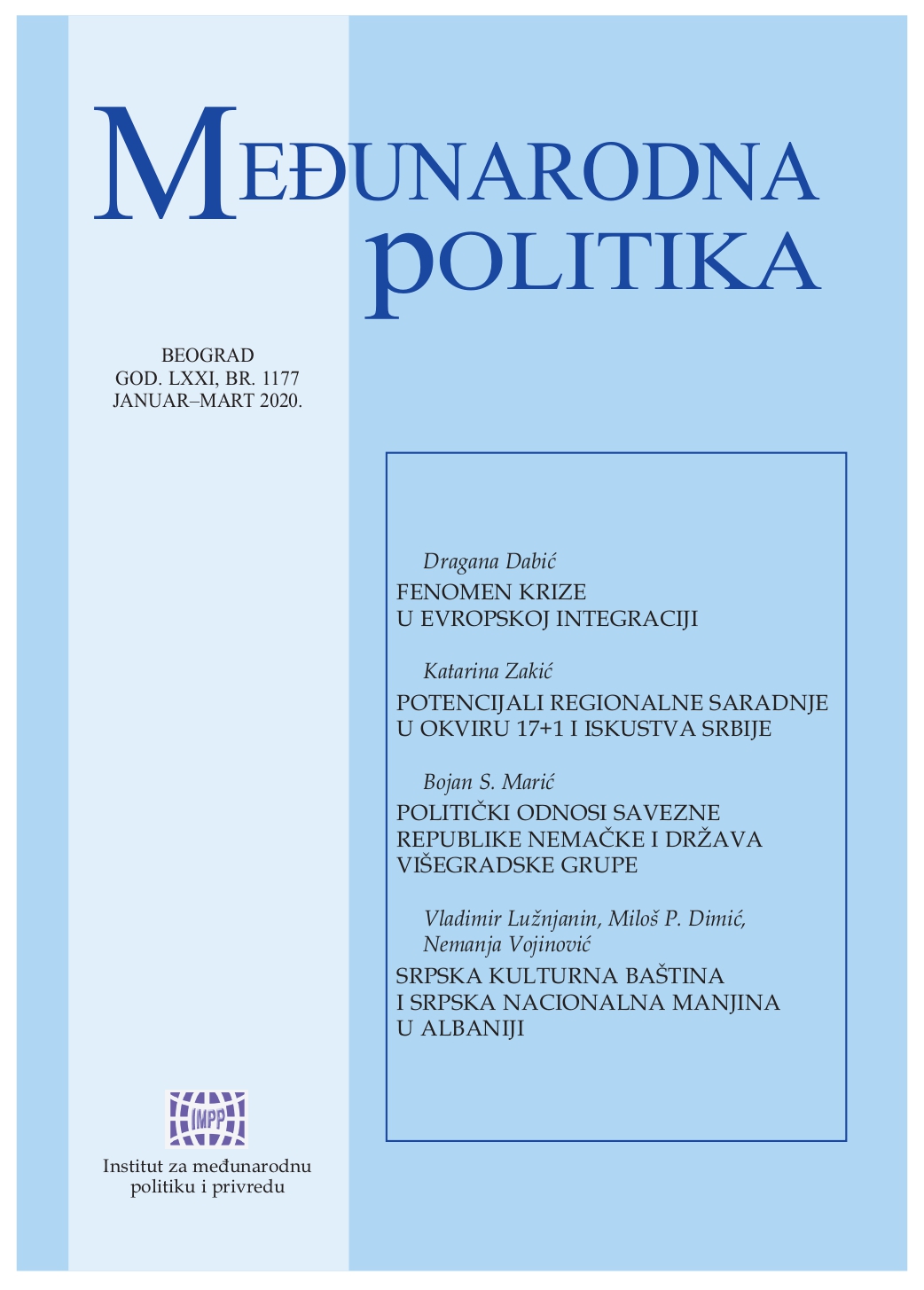Srpska kulturna baština i srpska nacionalna manjina u Albaniji
Serbian cultural heritage and the Serbian national minority in Albani
Author(s): Vladimir Lužnjanin, Miloš P. Dimić, Nemanja VojinovićSubject(s): Inter-Ethnic Relations, Politics and Identity
Published by: Институт за међународну политику и привреду
Keywords: Serbs; Enver Hoxha; Shkodra; Serbian cultural heritage; Albania; Serbian national minority; association Moraca-Rozafa
Summary/Abstract: Their interests were represented by the Cemiyet Party, which was eventually banned due to anti-state operations. During the reign of Enver Hoxha in neighboring Albania, their compatriots of the Albanian national minority in Kosovo and Metohija had freedom of thought, freedom of speech and political freedoms in many areas of life. In general, they had much more rights than their compatriots in Albania. However, the Serbian national minority in communist Albania during that time was suffering from the terror of boundless proportions. The personal names of people, cultural and religious heritage, freedom of religion, expression of nationality, all aspects of human life, and sometimes even life itself became subject of general oppression during the time of the dictator Enver Hoxha. After the dissolution of SFR Yugoslavia, NATO aggression against Yugoslavia, and temporary occupation of the southern Serbian province, status and position of the Serbian minority in Albania looked gloomier than during the rule of Enver Hoxha. The paper intends to give a brief historical account of the circumstances that explain the consequences of the present state of the Serbian national minority. However, it will primarily be focused on the present state of our minority, the renewal of its linguistic, cultural and religious life (a large number of Serbs in Albania are Muslims, especially in central Albania). Currently, the leading role in the renewal of the Serbian minority and its national and ethnic consciousness has an association Moraca-Rozafa from Shkodra, the Serbian Orthodox Church, the Republic of Serbia and many other individuals involved. Also, the authors of this paper want to point out the positive role of the Republic of Serbia and its concern for the compatriots in Albania.
Journal: Међународнa пoлитика
- Issue Year: 71/2020
- Issue No: 1177
- Page Range: 73-92
- Page Count: 20
- Language: Serbian

